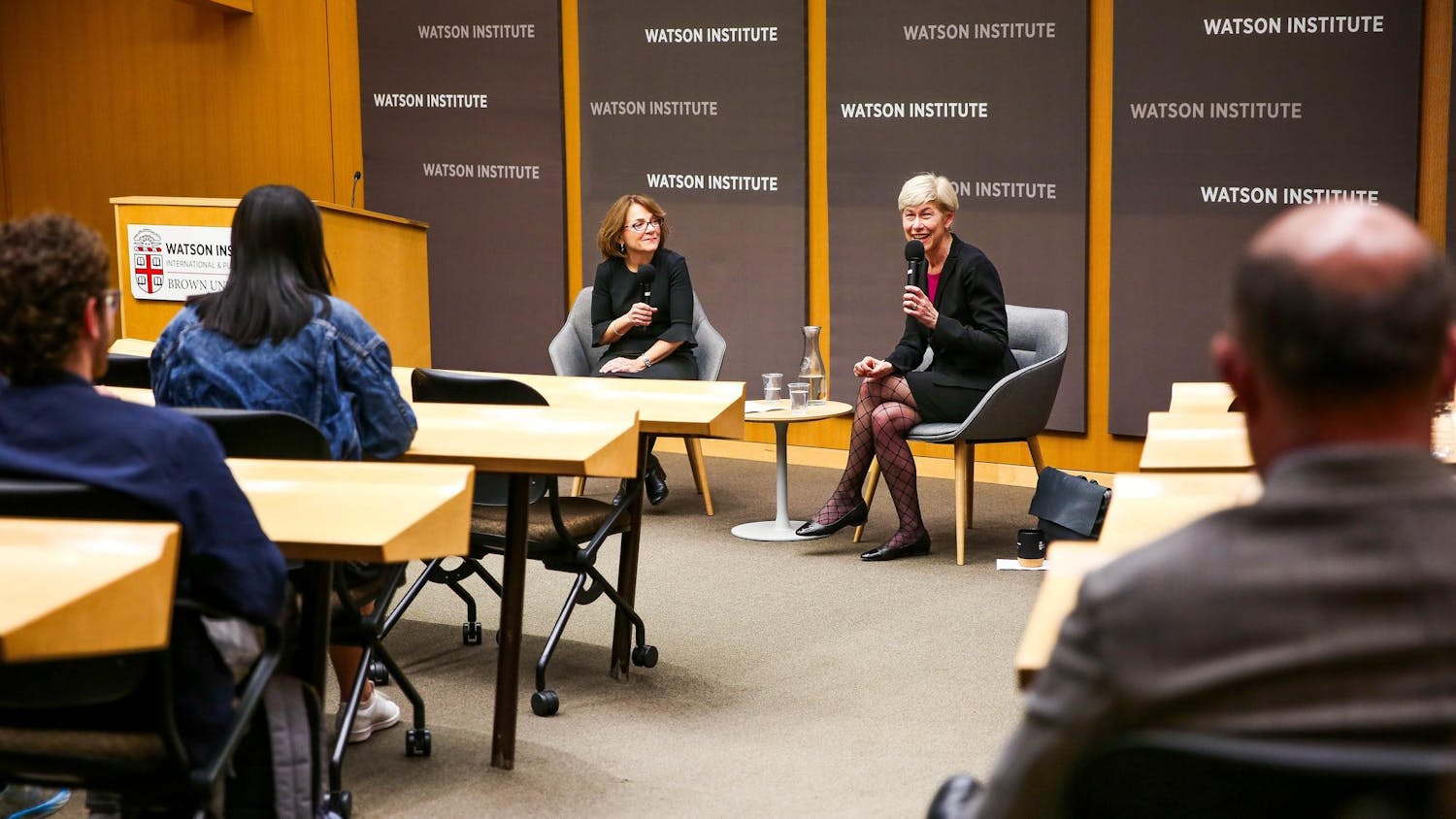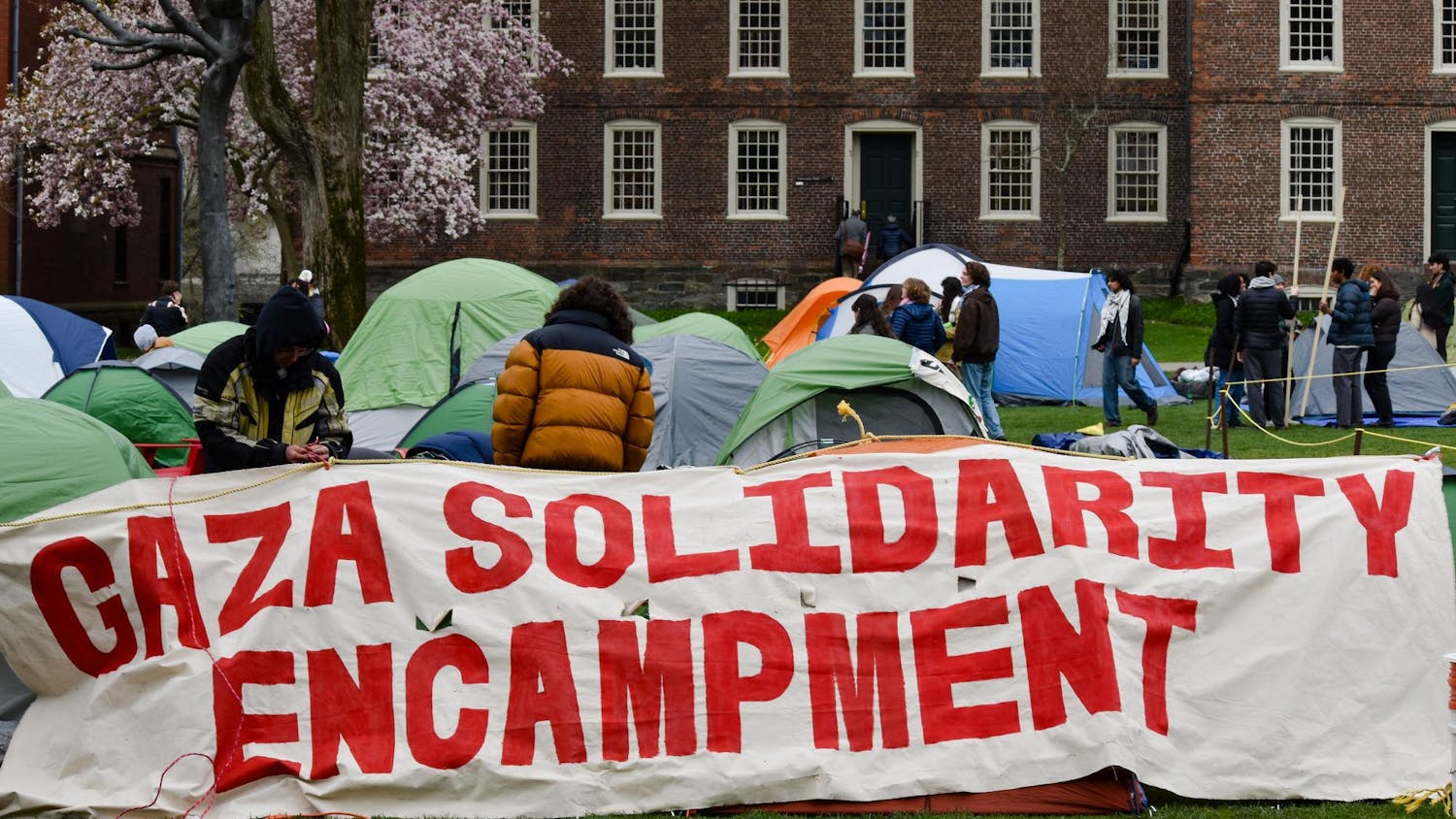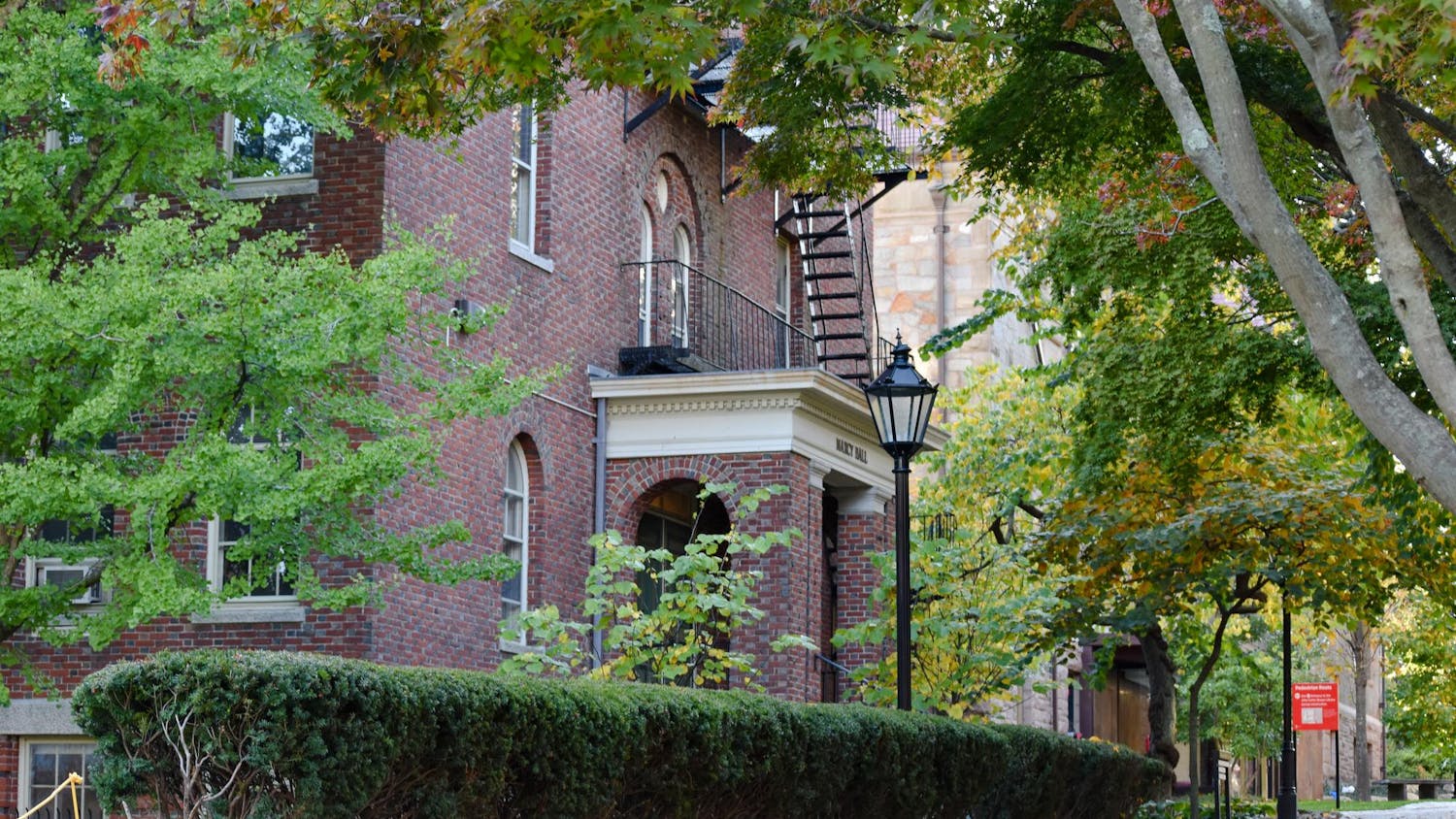“How many of you came tonight knowing exactly who I am and thinking you know exactly what I’m going to say?” asked Wendy McElroy, research fellow at the Independent Institute, kicking off her 20-minute talk and setting a tense tone for a highly anticipated Janus Forum debate on sexual assault that filled around three-quarters of Salomon 101.
McElroy’s impending arrival on College Hill spawned controversy across campus. President Christina Paxson sent out a community-wide email Friday publicizing her personal disagreement with McElroy’s widely reported assertion that rape culture does not exist in the United States and cannot be used to explain individual incidents of sexual assault.
The talk, titled “How Should Colleges Handle Sexual Assault?” largely deviated from the Janus Forum’s stated purpose for the event, centering instead on the question of whether rape culture exists, and then on the implications of the phenomenon for victims and perpetrators of sexual assault. The speakers also touched on how the debate over rape culture affects the disciplinary process for accused students.
Some students protested the event or attended alternatives, such as a University-organized presentation by Professor of Psychiatry and Human Behavior Lindsay Orchowski, titled “Research on Rape Culture.” But others came to challenge McElroy’s views. “I don’t think that you can just shy away with something you disagree with —you need to understand it better so you can refute it better,” said Kate Ferguson ’18, who is involved with Feminists at Brown.
McElroy used personal experience to lay the groundwork for an argument that places more emphasis on individual, rather than cultural, explanations of rape.
“I was raped and brutally so … I did not blame society. I did not blame the culture. I blamed the man who raped me,” McElroy said.
But Jessica Valenti, who offered her opposing perspective in a 20-minute presentation after McElroy’s, expressed frustration that some continue to question rape culture’s existence, adding that the debate leaves her “exhausted.”
The contrast between the tones of the two speakers was striking. McElroy was defensive from the outset, commencing her talk by explaining that she has personally experienced sexual violence, identifies as a feminist and would not tolerate any claims that she belittles survivors. But Valenti seemed calmer, with her first statement affirmed by light applause from the crowd.
Valenti highlighted several recent cases as evidence that American culture “gives rapists a social license to operate.” In one case, a lawyer described an 11-year-old victim of gang rape as a “spider” who lured men into raping her.
McElroy said rape culture exists in places like parts of Afghanistan where “women are married against their will” and “murdered for men’s honor” but not in North America, where “rape is a crime that’s severely punished.”
What’s more, those who politicize rape and assert the existence of rape culture imply that all men are guilty or that the accused do not deserve due process, McElroy said.
It is unacceptable that men can now be disciplined for rape through college hearings based on a preponderance of evidence rather than the traditional criminal justice standard of guilt beyond a reasonable doubt. “Let’s not build justice for women on injustice for men,” McElroy said, closing her talk.
Valenti never tackled the question of whether a preponderance of evidence or guilt beyond a reasonable doubt should be the standard for conviction of men in college hearings, but she did talk about other aspects of sexual assault as it relates to college campuses, such as the fact that alcohol plays a role in most sexual assault incidents.
“Alcohol is not the problem,” Valenti said, chuckling at the notion. “What we need to discuss is the way rapists use alcohol as a weapon to attack and then discredit their victims.” Rapists benefit from others’ insistence that a victim’s inebriation is to blame for his or her assault, she added.
Both speakers addressed how students might move forward in eliminating rape and sexual assault on campus.
“Stopping someone from telling a rape joke or saying they got ‘raped’ by a test” would be a start, Valenti said, but she also urged students to hold university administrators responsible for addressing rape on campus.
Noting that Columbia and Barnard College students have recently written the names of accused student rapists on the walls of their schools’ buildings, Valenti said, “While I can’t officially suggest that you vandalize school property, I’m not against radical action.”
Valenti expressed optimism for students and activists’ ability to combat rape culture and eliminate sexual assault on college campuses. She cited one encouraging sign as students helping Columbia student Emma Sulkowicz carry a mattress around as a symbol of the burden she bears while Columbia allows her rapist to remain on campus, Valenti added.
Having already voiced concerns about the way male students are treated in the hearing process at universities, McElroy said “Rape is a criminal offense; go to the police,” adding, “It’s not an infraction of college policy; maybe the police do a piss-poor job but they do a better job than bureaucrats, academics, many of whom are ideologically biased.”
“If students want to make a difference in the justice with which rape victims are treated, then you should be protesting at police departments and outside courtrooms,” McElroy said, adding that in doing so, “students …wouldn’t just be helping (themselves), (they) would be helping every woman in America.”

ADVERTISEMENT




